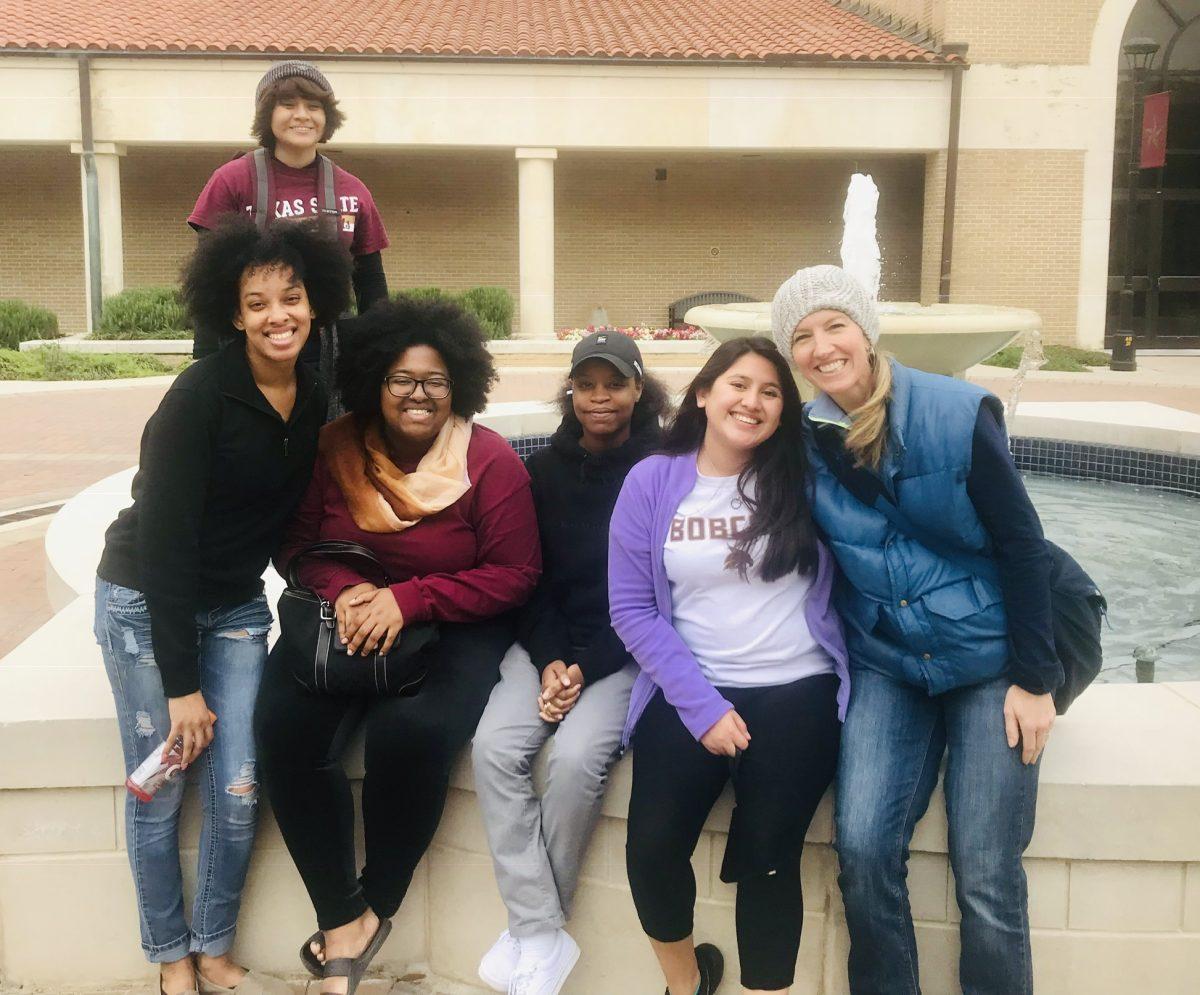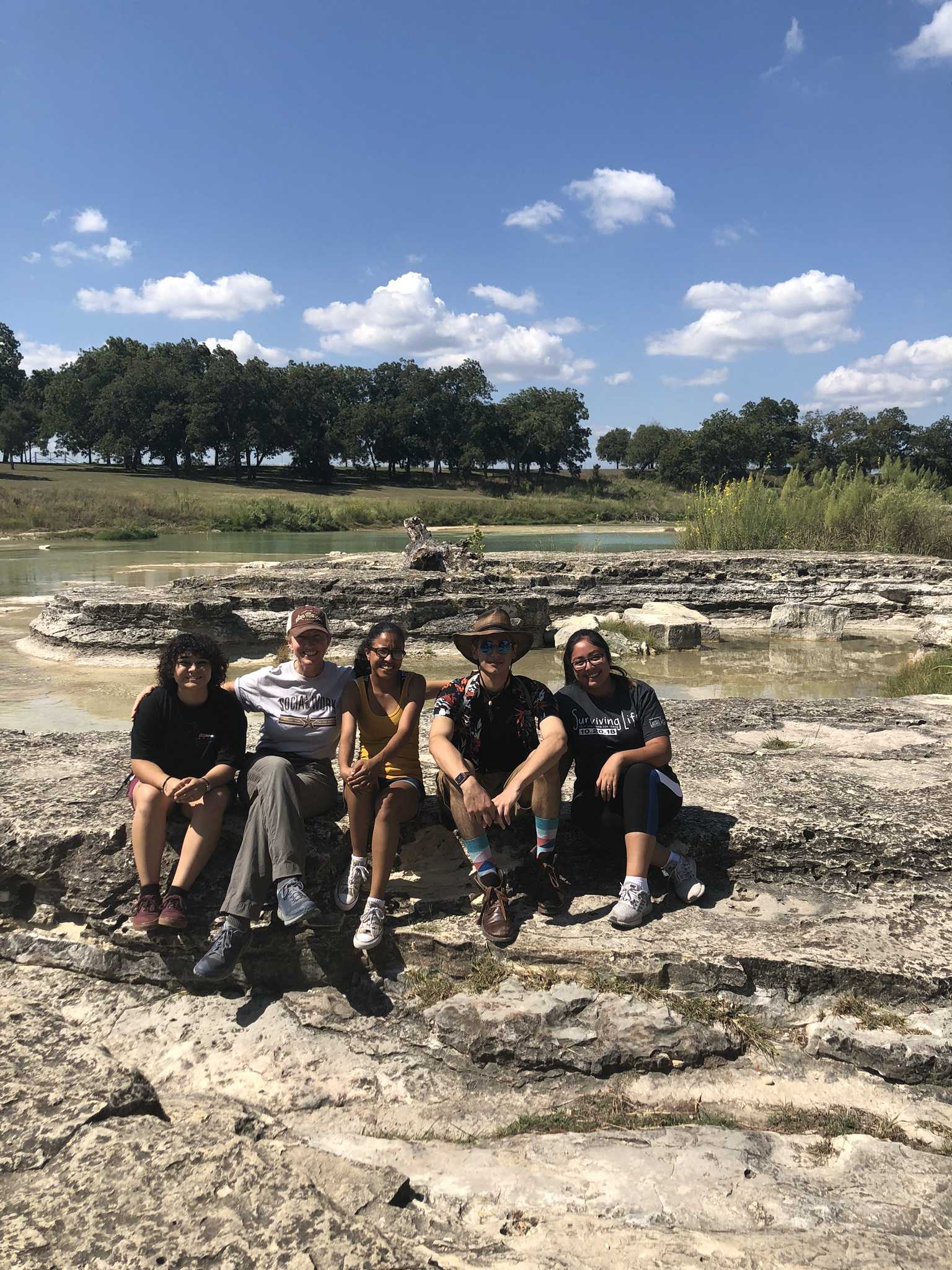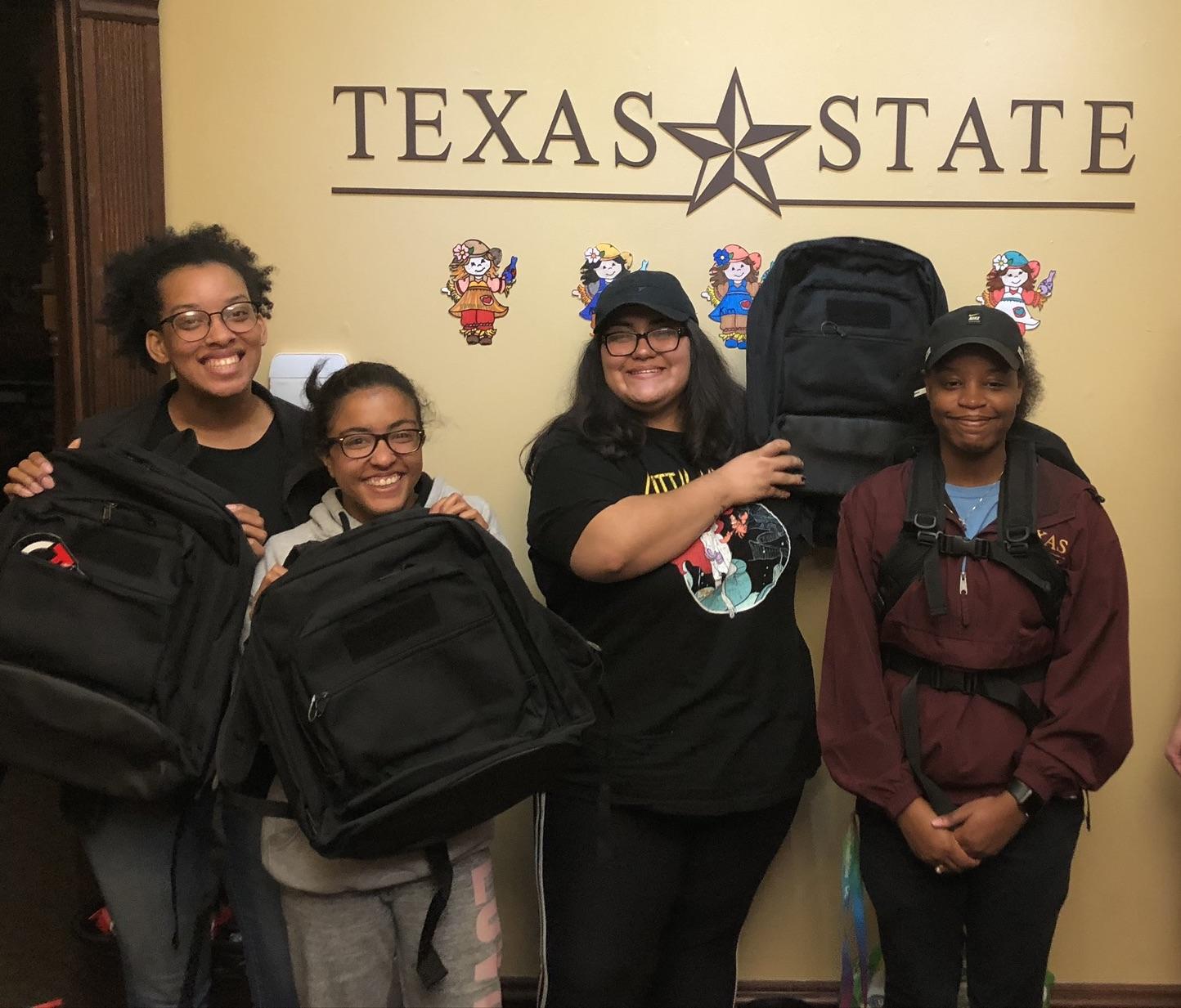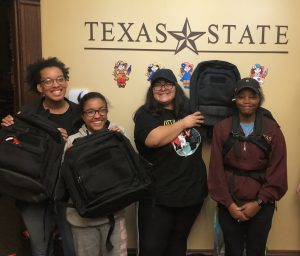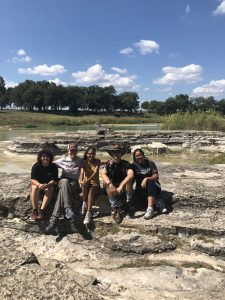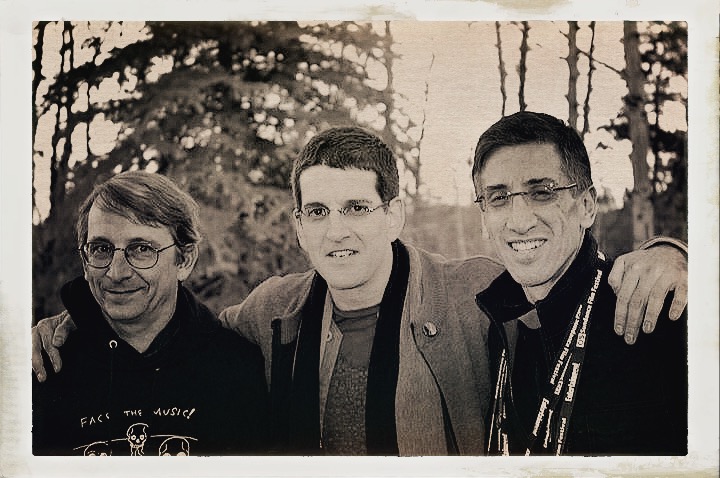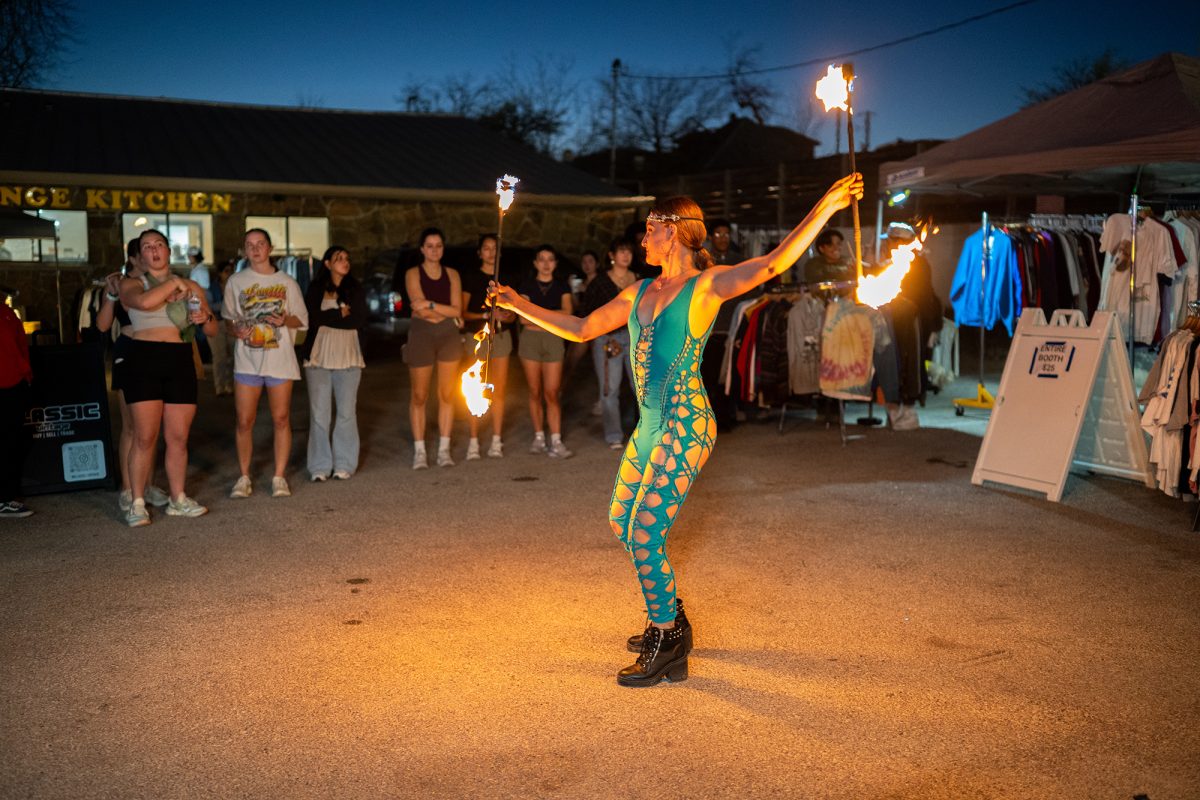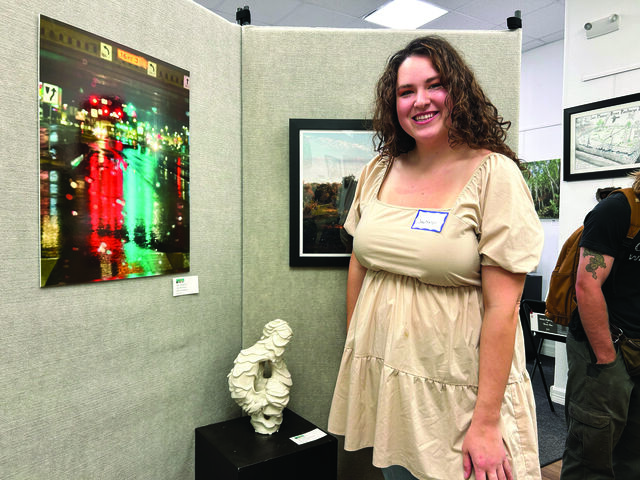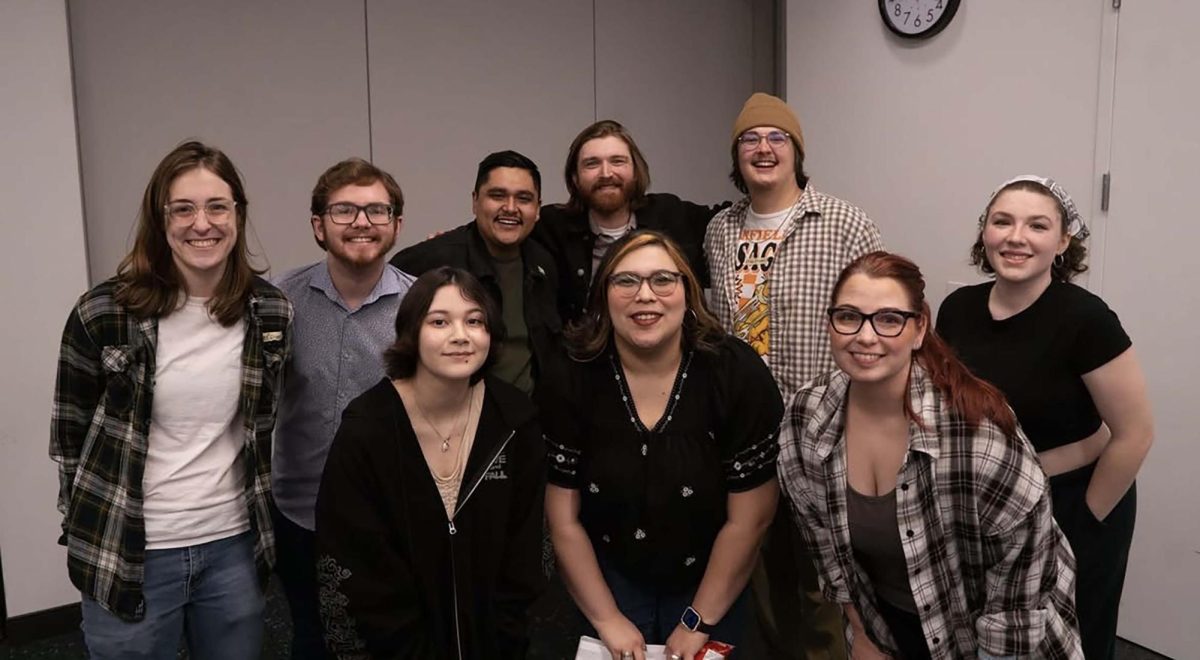For new college students, the first weeks of classes consist of navigating a new campus and building relationships with like-minded people. Foster youth students, however, sometimes find themselves under more difficult circumstances, as college students with traditional family backgrounds cannot always relate to their unique struggles.
Research shows youth aged out of adoption and foster services are at a disadvantage compared to their non-foster care peers. With little support, compounded by the difficulties foster students face, such as complex trauma, mental health challenges and instability, finding an organization or community at Texas State presents challenges.
Foster Care Alumni Creating Educational Success, or FACES, an on-campus organization aimed at aiding foster youth, are welcoming foster students in need of a strong, goal-driven community with open arms. The organization is dedicated to providing academic or personal resources to Texas State students who spent time in foster care at any point throughout their lives.
The organization also seeks to address the need for equity, access and inclusion for students by employing a trauma-informed and strengths-based approach in an effort to create a more inclusive and equitable campus environment.
“FACES has a direct impact on students’ mental health because they support one another. It’s not just that they’re getting support from us but [also] the whole program,” says Dr. Christine Norton, a liaison between FACES and the Texas Higher Education Coordinating Board and a professor of social work. “Foster care is definitely a part of your identity. You brought complex trauma with you, but that doesn’t make you less than. It doesn’t mean you’re broken. It means you struggle, and we all struggle and so [we want to] normalize the struggle.”
FACES has improved its students’ lives on campus since 2011 with the objective to recruit, retain and graduate youth with experience in the foster care system.
“Legislation passed several years ago [stating] every two-year and four-year public university in the state of Texas must have a person on their campus that is a foster care liaison so that youth who are interested in coming to college have a point of contact,” Norton says. “So we have the FACES student organization but then also FACES is a larger campus-wide initiative.”
The organization hopes to usher in inclusivity by recognizing unique aspects of its students’ identities that go largely ignored, such as first-generation status, gender expressions, sexual orientation, race and ethnicity.
“A lot of our students are students of color because of the disproportionality in the foster care system,” Norton says. “So that makes it even more important for me to make sure that the program is empowering… It’s like they’re leaders on our campus and the whole program is centered around creating a community of support so that they can step into those empowering aspects of their identity.”
FACES offers students opportunities to improve their life skills through individualized mentorship, housing security, food pantries, textbook lending libraries, free school supplies and community events based on engaging foster youth.
Shyla Bell, FACES secretary and a social work sophomore, is a foster youth who took advantage of the food pantry and community support provided by the program.
“You walk in and they welcome you with open arms,” Bell says. “They teach you to be accepting of your past, move forward and know that you can succeed, despite everything that has been thrown at you.”
According to its members, students engaged with the FACES program have higher retention rates, greater academic success and mental health stability compared to foster students uninvolved in FACES.
“I have seen students persist in their education because we help them have stability through maintaining safe housing in the residence halls over the holidays,” Norton says. “Or connecting them with a supervised independent living program that we have — an off-campus agreement that provides free housing up until the age of 22.”
The program’s success is attributed to its student leaders who have cultivated a nonhierarchical, de-stigmatized and interconnected relationship between members.
“I want people to know that [FACES is] not a place where you’re constantly reminded or pitied for your background,” says Eree Tsatenawa, vice president of FACES and an exploratory professional sophomore. “Yes, we all have a uniting background that may be sad for some people, but that’s what brings us together as a group.”
Even with the improvements toward inclusivity among foster youth on campus, Norton believes Texas State and San Marcos communities can still do much more to support students with foster backgrounds.
“I would really love to see more affordable housing in the San Marcos community,” Norton says. “I would also love to see the university make counseling access unlimited on campus, maybe a special therapist in the Counseling Center that has experience with youth, foster care and complex trauma that can serve the mental health needs of our students… and then I’d love to see more on-campus jobs for our students.”
FACES students also hope to de-stigmatize the perception of foster youth on campus as “charity cases” and for the university to acknowledge and celebrate organization members’ accomplishments.
“We had 36 people on the Dean’s List last semester… I don’t want it to be like, ‘Oh wow you actually made the Dean’s List,’ but I also don’t want that to get slid under the rug,” Tsatenawa says. “I want it to be celebrated that we are doing this within our community. It would make a lot of FACES students that maybe aren’t involved in the [organization] be like, ‘Hey, they are getting recognition. I shouldn’t be scared to come out as a FACES student.’ I think that would be really encouraging for all of us.”
Dedicating itself to creating a better and more inclusive environment, the FACES program showcases the capability and contribution of foster youth students on campus when provided opportunities.
“We say at FACES, ‘Smooth seas do not make skillful sailors,’” Norton says. “These students know rough seas, and it’s made them resilient.”
For more information about getting involved as a member or mentor, visit FACES’ website or email faces@txstate.edu.
Categories:
FACES encourages inclusivity, resilience among Texas State foster students
Andrea Mau, Life and Arts Contributor
March 4, 2021
FACES members and officers (from left to right) Shantell Batiste, Valerie Ramirez, Destiny Aguinaga, Amber Alston, Ranisha Dokes and Dr. Norton sit outside Flowers Hall.
0
Donate to The University Star
Your donation will support the student journalists of Texas State University. Your contribution will allow us to purchase equipment and cover our annual website hosting costs.
More to Discover



